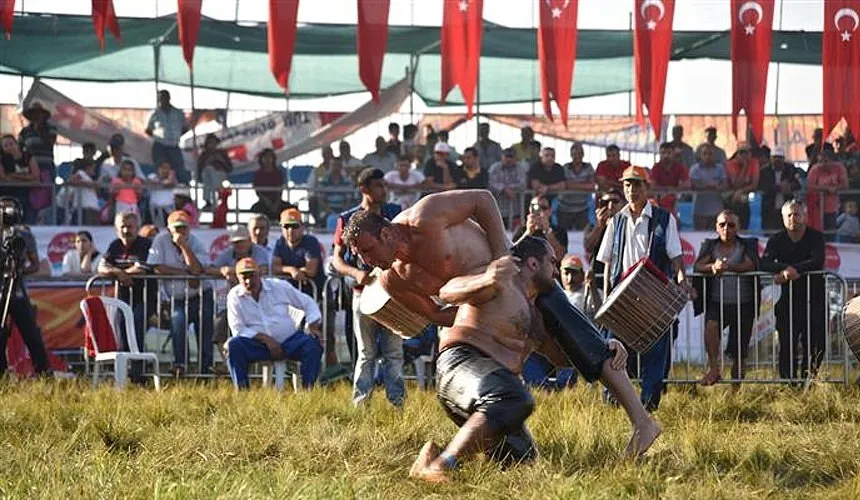Turkey, a land where continents converge, is a canvas of cultural pluralism, painted with the hues of its rich history and contemporary spirit. The Turkish festivals and traditions are a testament to this cultural amalgamation, offering a kaleidoscope of experiences that reflect the nation's soul and identity.
In Turkey, a country rich in cultural diversity, the Camel Wrestling Festival is a unique tradition rooted in the Aegean region. Originating centuries ago, this festival involves male camels, typically in their mating season, wrestling each other, spurred on by a female camel. This event is more than a competition; it's a grand social gathering where music, dance, and feasts unite the local communities in a celebration of cultural heritage.
The Kırkpınar Oil-Wrestling Festival, held annually in Edirne, has a legacy of over 650 years, making it one of the oldest wrestling events globally. Competitors, known as "pehlivans," are covered in olive oil and wear traditional leather trousers, engaging in matches that are as challenging as they are slippery. This historic event, rich in ritual and community spirit, bestows great honor on the title of "Baspehlivan" or chief wrestler.
In Istanbul, the annual Tulip Festival transforms the city into a colorful display of tulips, celebrating the flower's historical significance in Ottoman culture. Since its initiation in 2006, the festival has showcased millions of tulips in various colors and designs, accompanied by art installations, music, and cultural events, with Emirgan Park becoming a prime attraction.
The Mesir Paste Festival in Manisa, celebrated since the Ottoman era, commemorates the creation of a therapeutic spice blend believed to have cured the Sultan's mother. Thousands gather around the Sultan Mosque every March to catch the herbal paste, "mesir macunu," distributed from the mosque's dome.
Hidirellez, observed on May 5th and 6th, marks the arrival of spring and is associated with the prophets Hızır and İlyas. It's celebrated with cleaning homes, preparing special foods, and building wish trees adorned with notes and ribbons. Large bonfires are lit at night, with people jumping over them for purification and good fortune.
The Nevruz Spring Festival, celebrated on March 21st, heralds the onset of spring and the Persian New Year. This event is deeply rooted in Turkic and Persian traditions and includes lighting bonfires, singing, dancing, and sharing special dishes, symbolizing themes of unity, peace, and respect.
Turkey's music and dance festivals, like the Istanbul Jazz Festival, Alanya Jazz Festival, Antalya Piano Festival, Bodrum Dance Festival, and various Folk Dance Festivals, showcase a blend of local and international performances. These festivals celebrate Turkey's rich cultural tapestry and encourage cultural exchange through music and dance.
The International Aspendos Opera and Ballet Festival in Antalya offers a unique experience of enjoying performances in the ancient Aspendos Theatre. This festival blends modern arts with historical charm under the night sky.
The Cappadocia Air Balloon Festival creates a stunning display in the sky above Cappadocia's landscapes. Balloon pilots from around the world participate, complemented by activities like exploring local markets and enjoying Turkish foods.
The Cappadox Festival in Cappadocia merges music, art, and culinary experiences. It invites attendees to enjoy performances, art installations, and culinary delights, along with activities like yoga and nature walks.
The Antalya Golden Orange Film Festival, one of Turkey's oldest film festivals, highlights Turkish and international films. It includes film screenings, discussions, and the Golden Orange Awards.
Lastly, the International Antalya Sand Sculpture Festival, or Sandland, features artists creating large sand sculptures on Antalya's beaches. These detailed works of art, lit up at night, provide a magical experience for visitors

